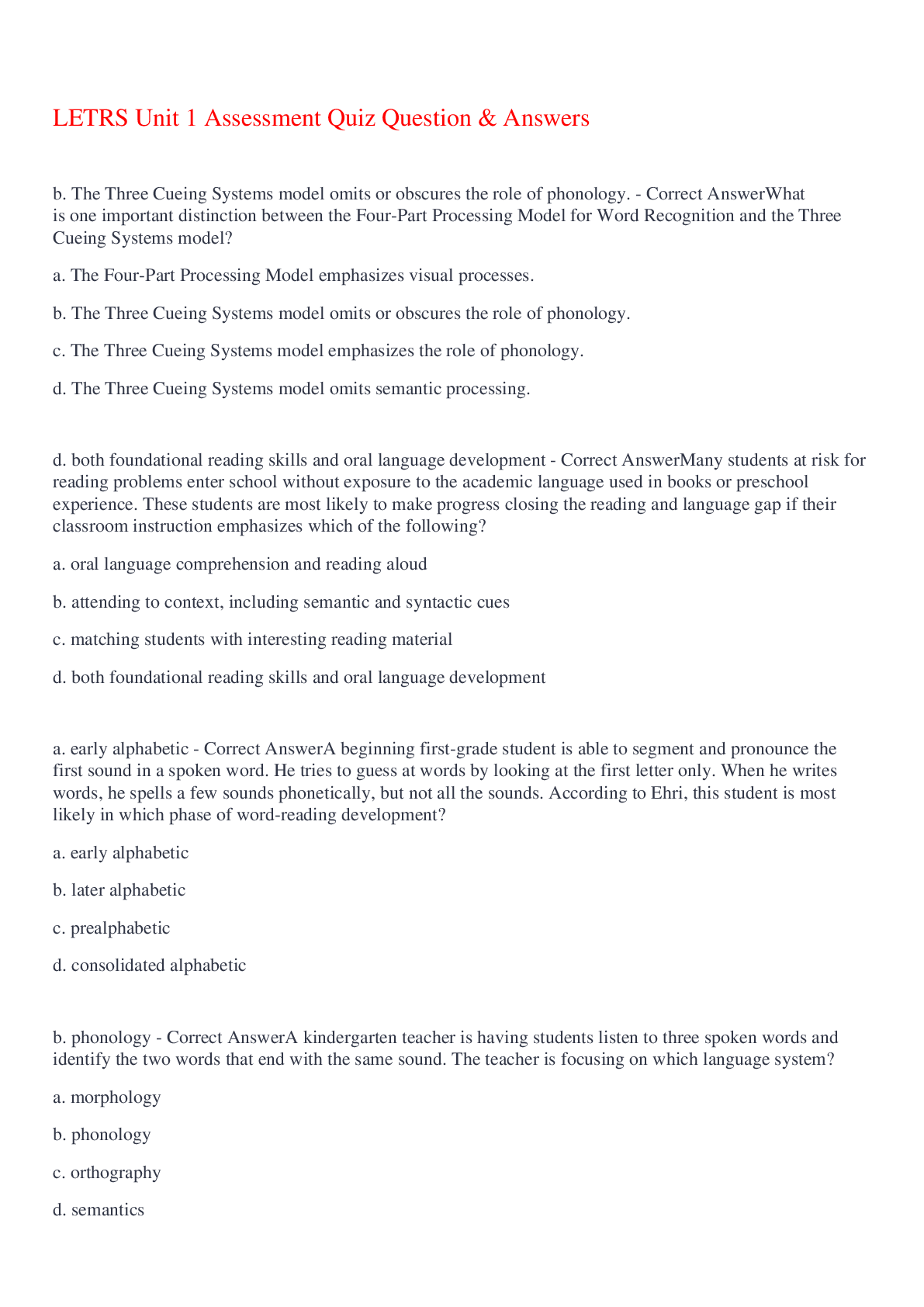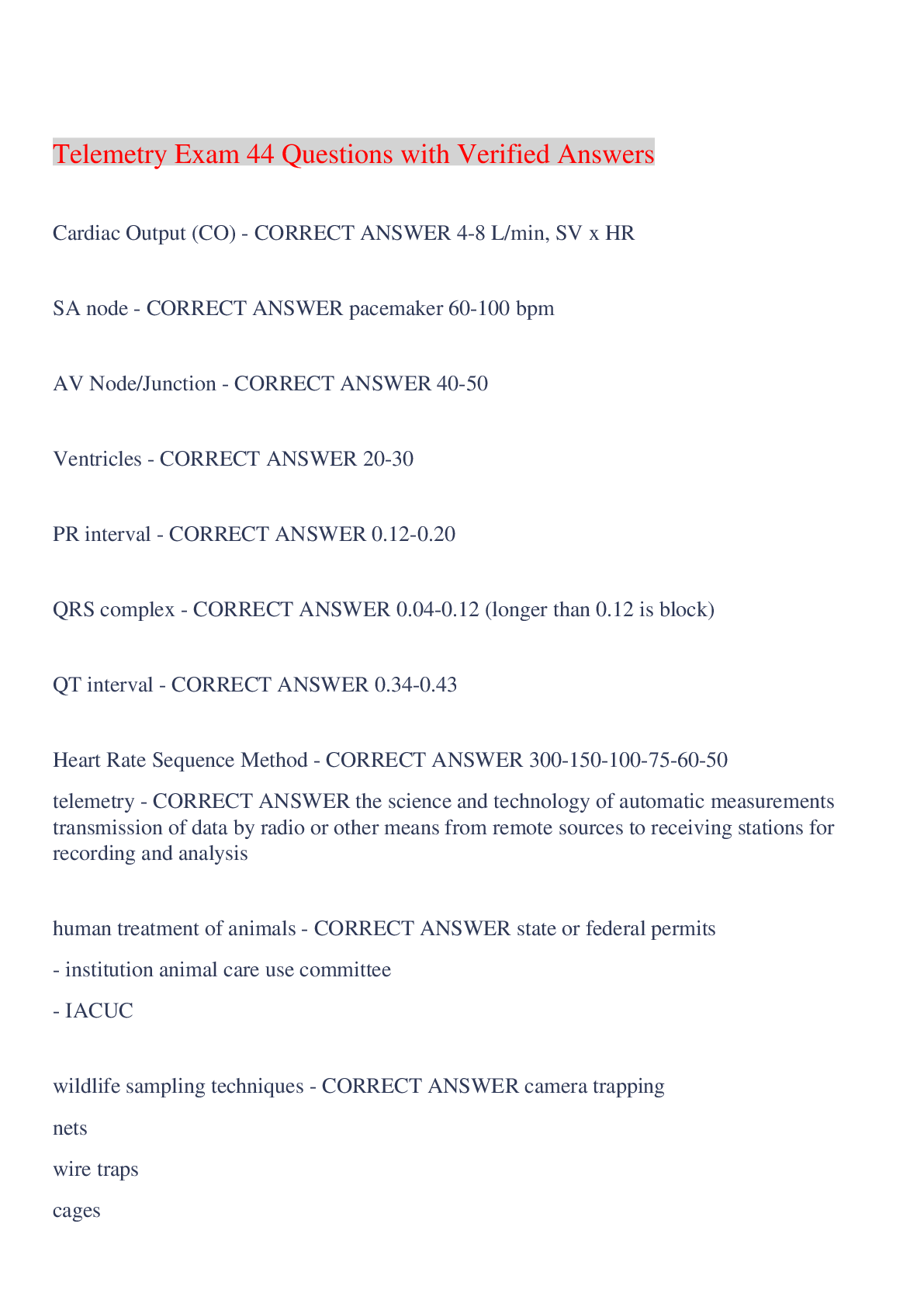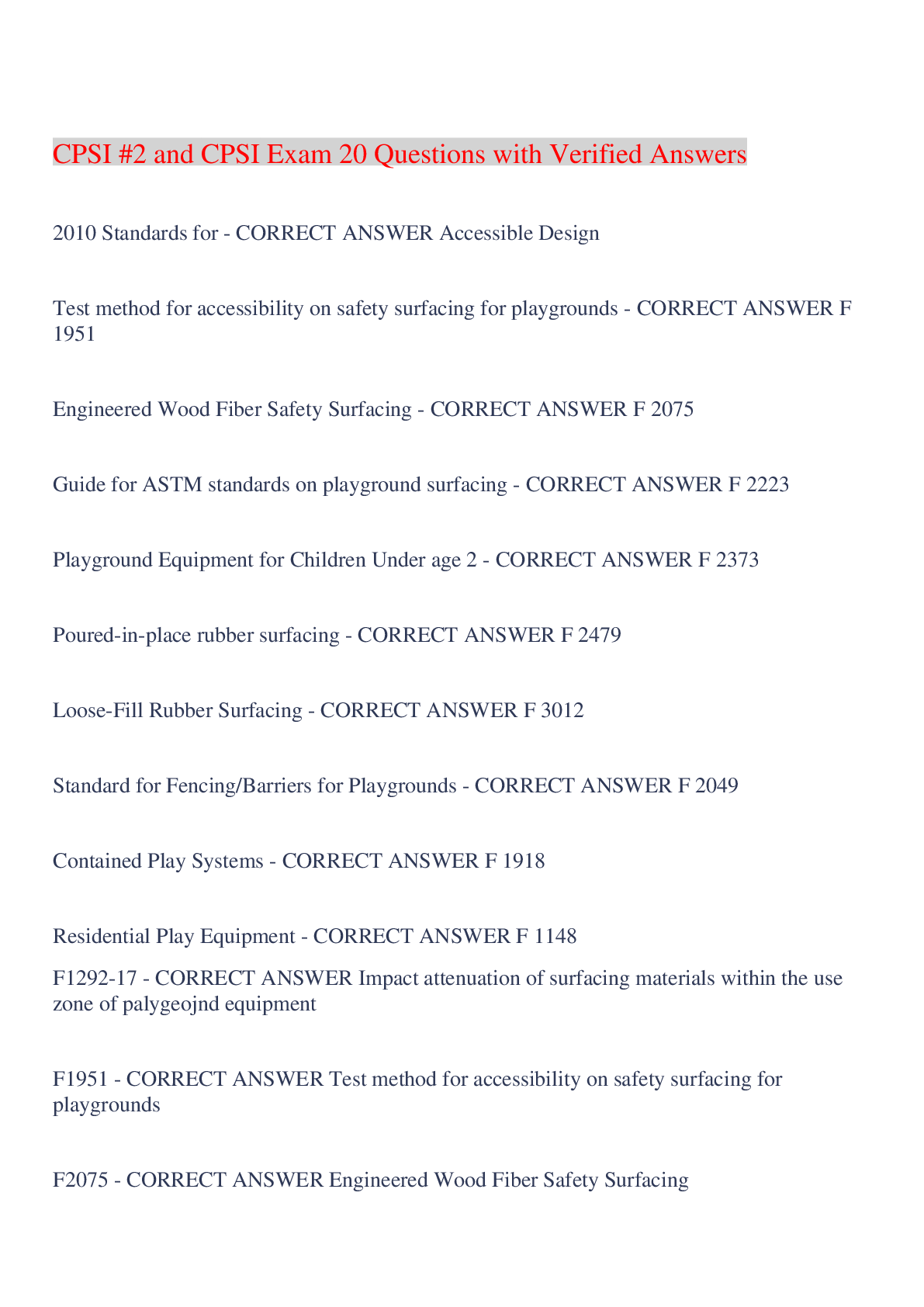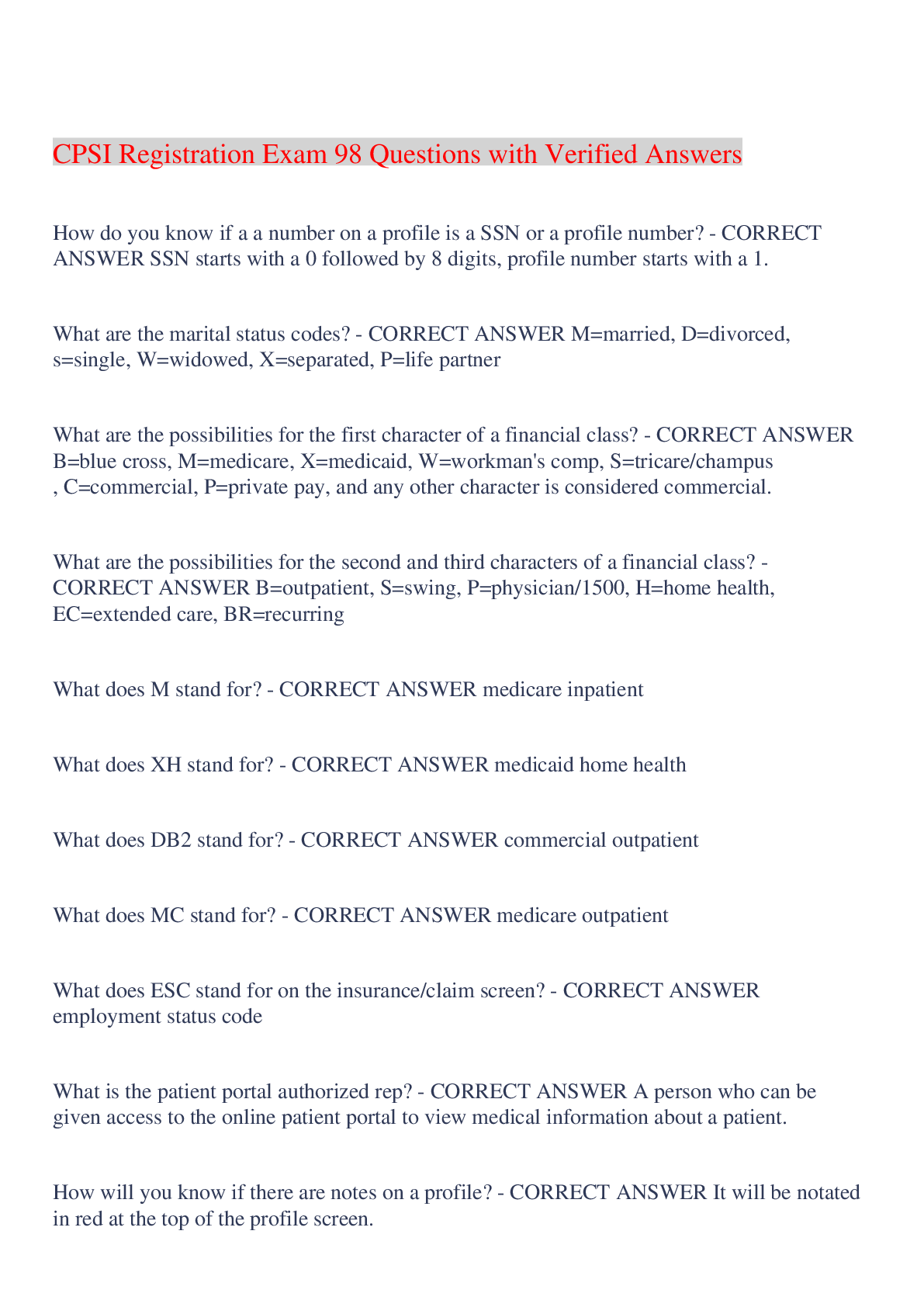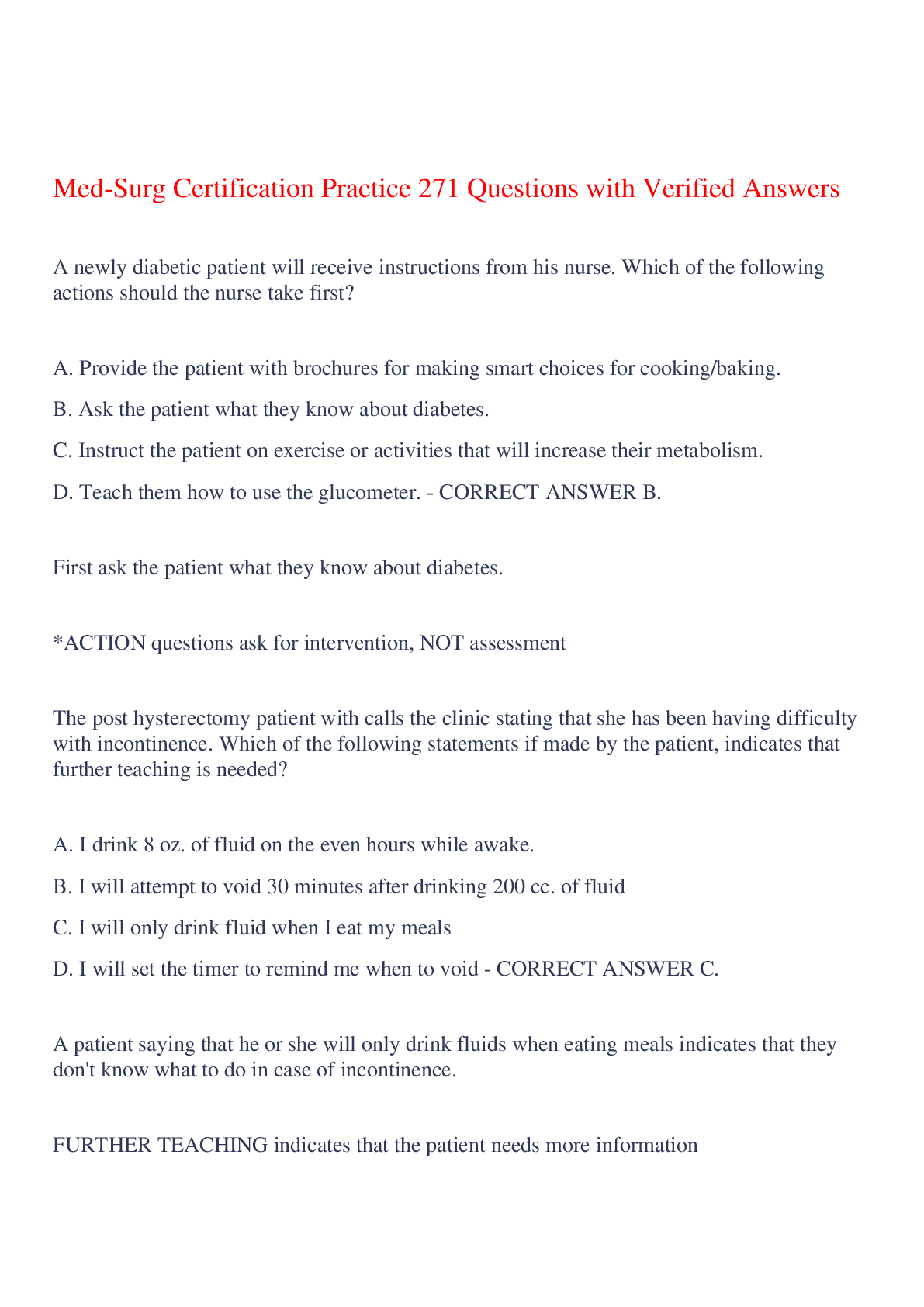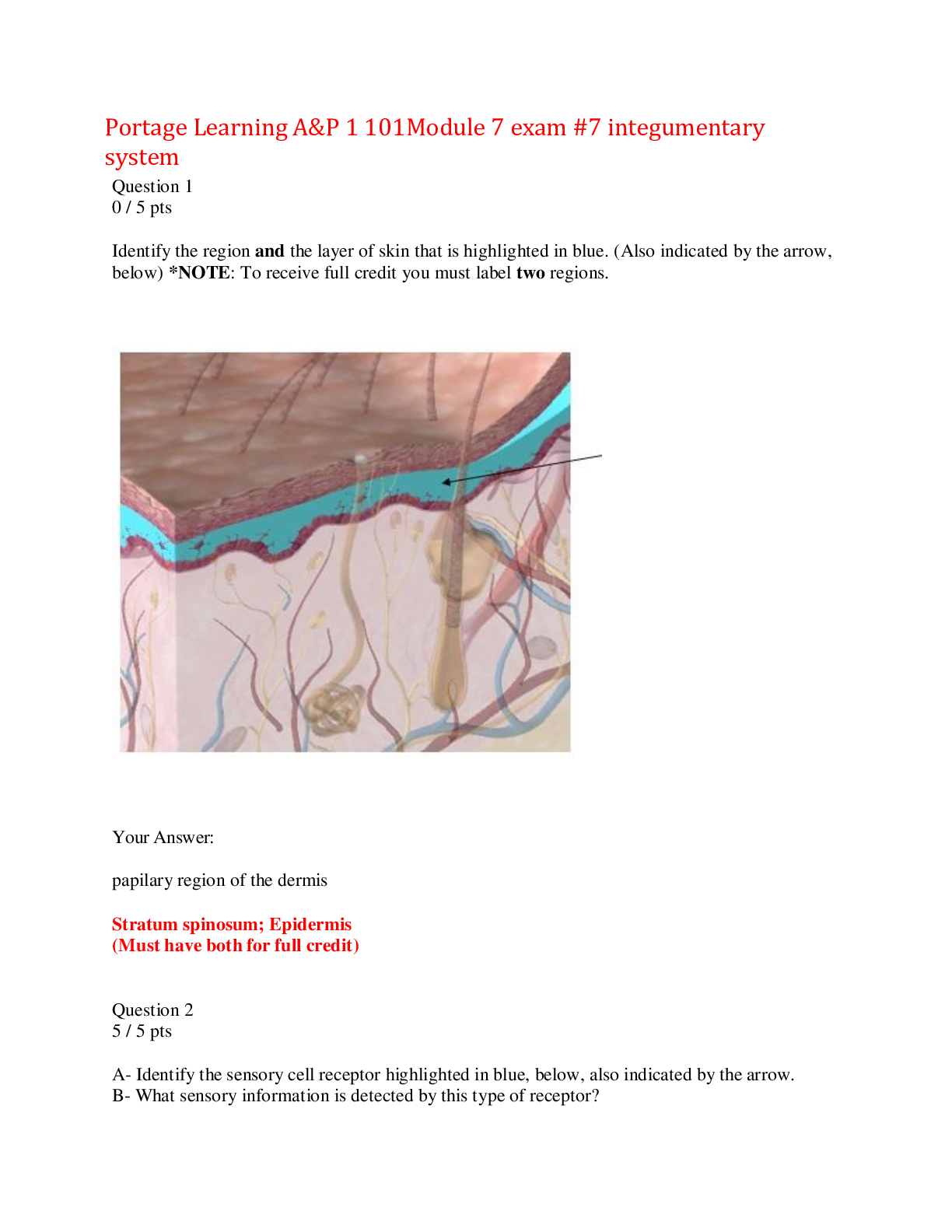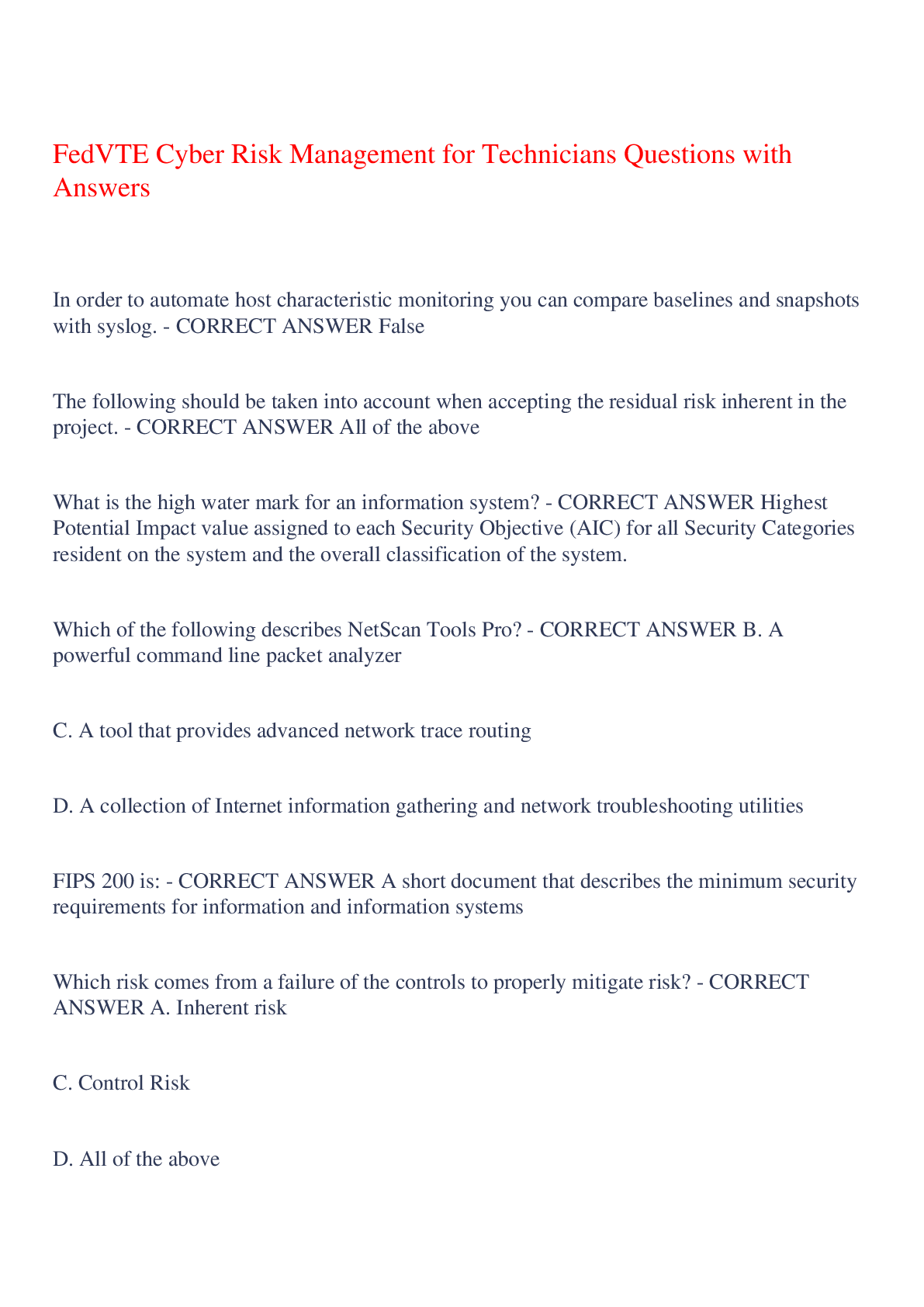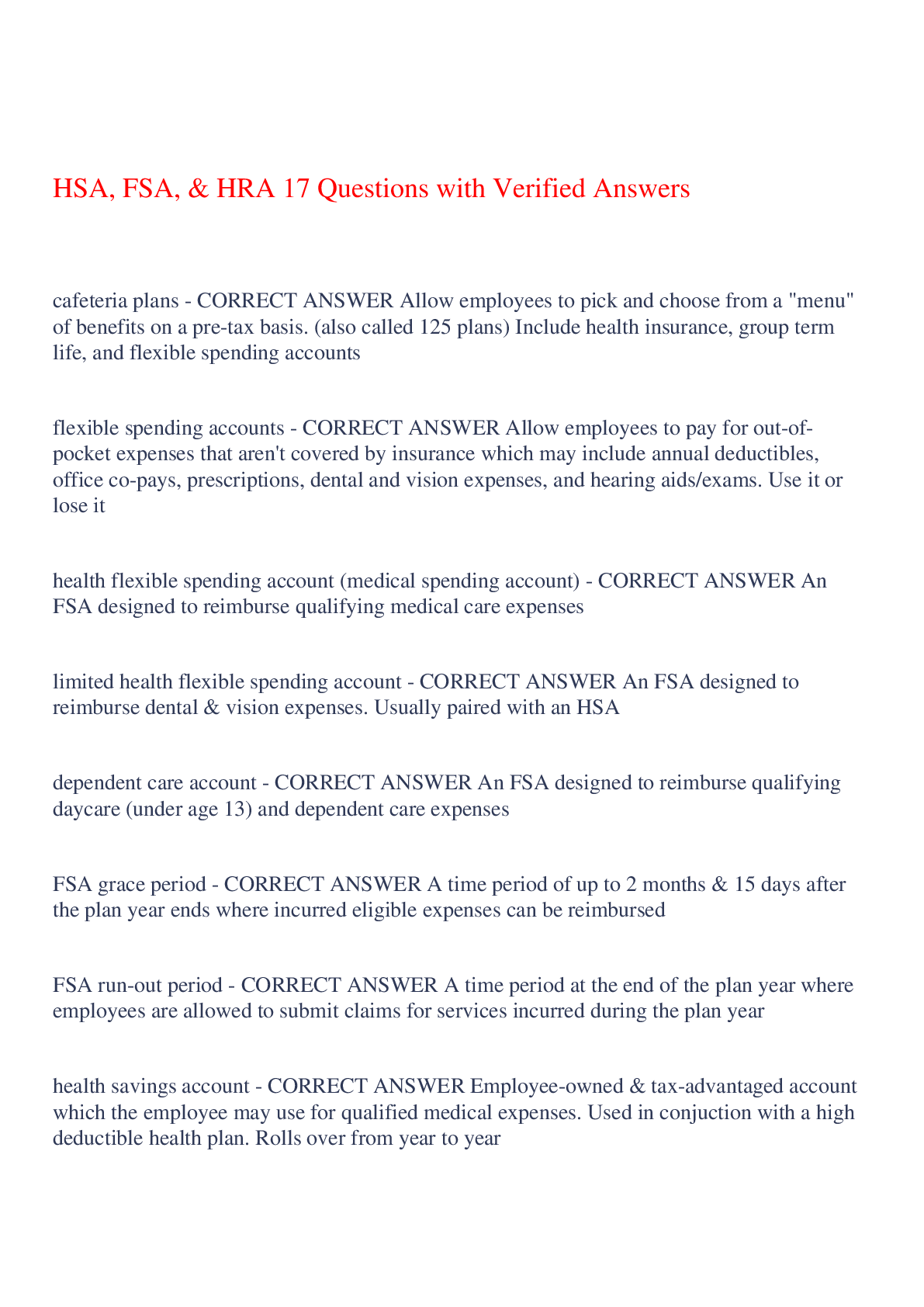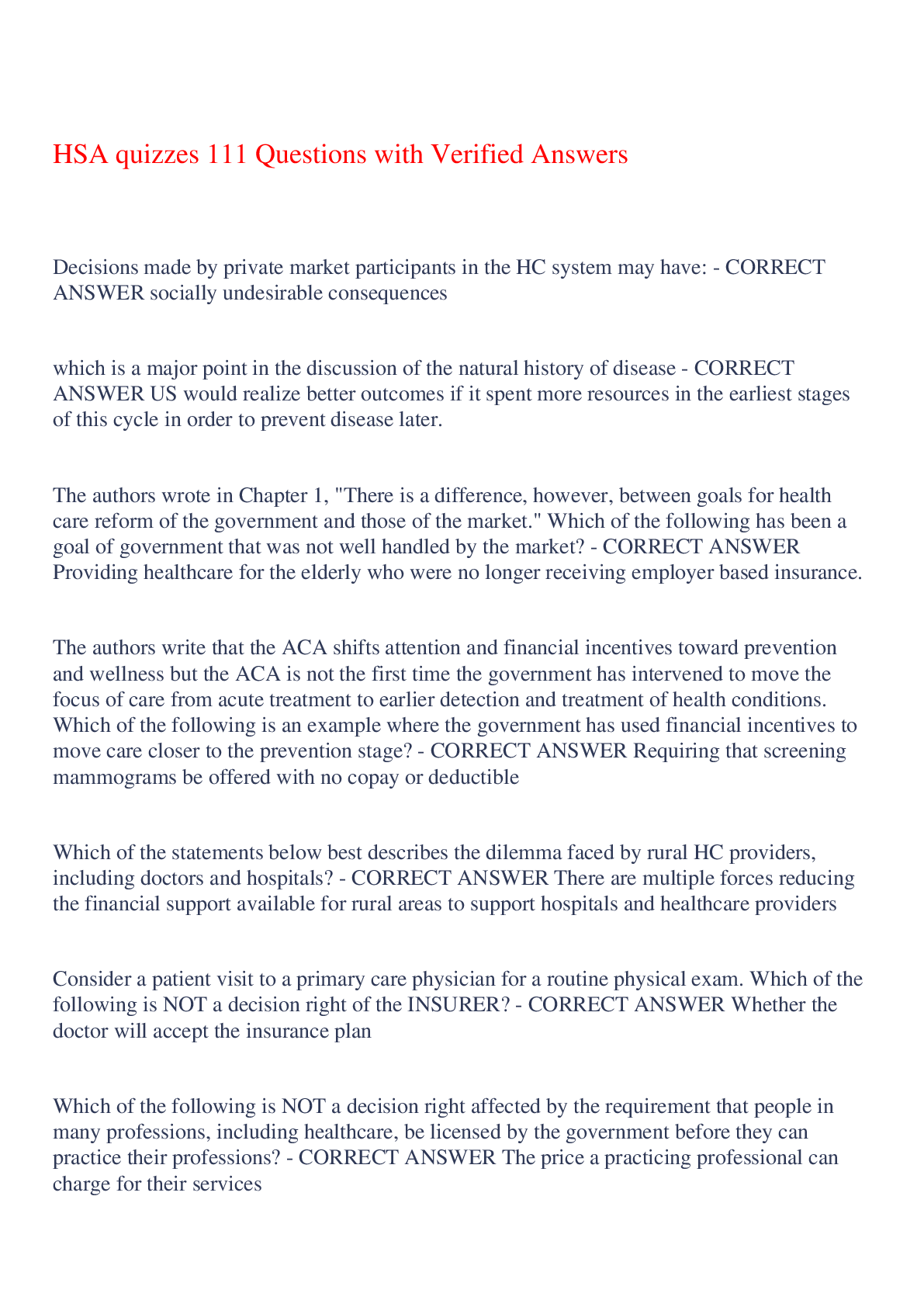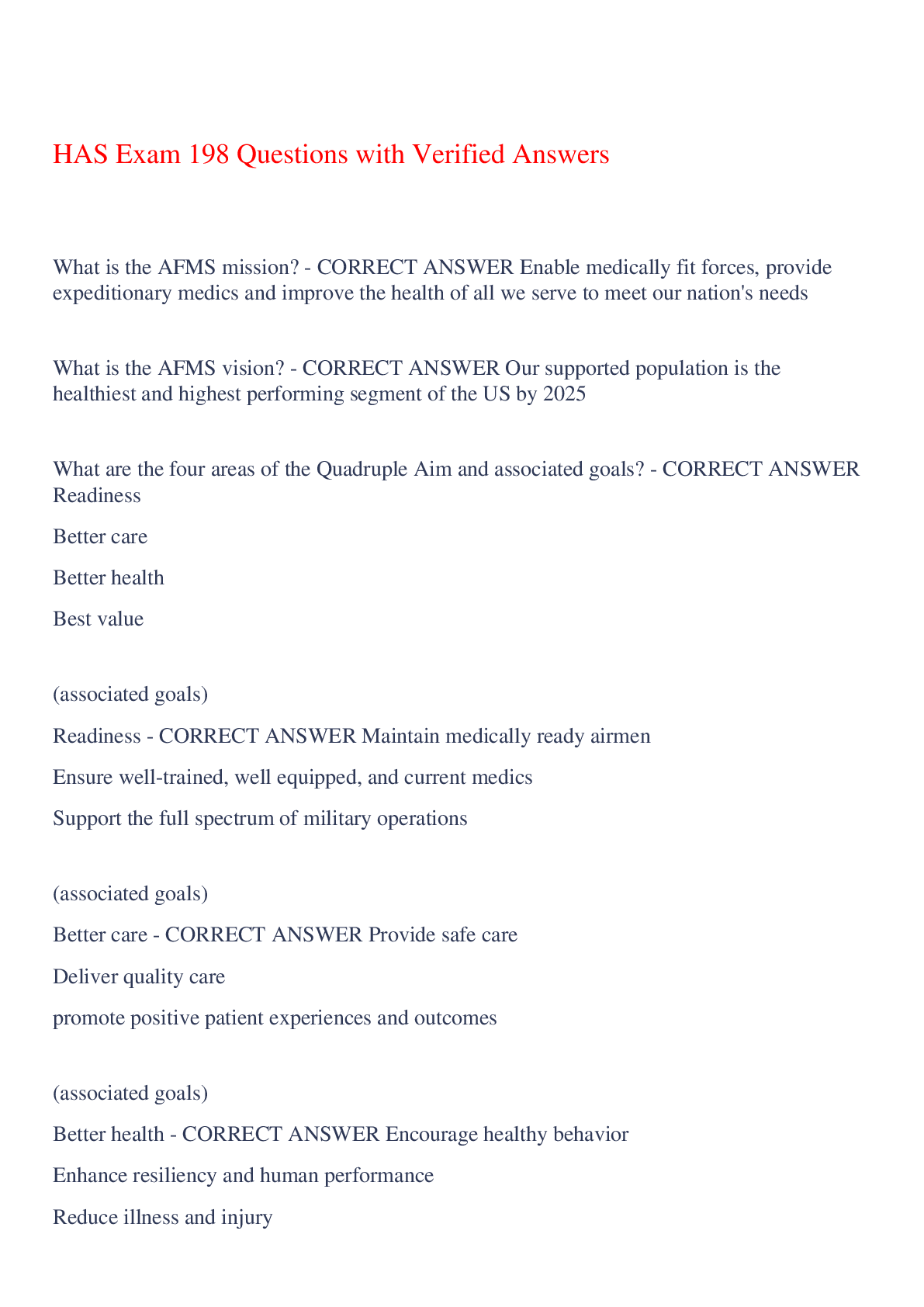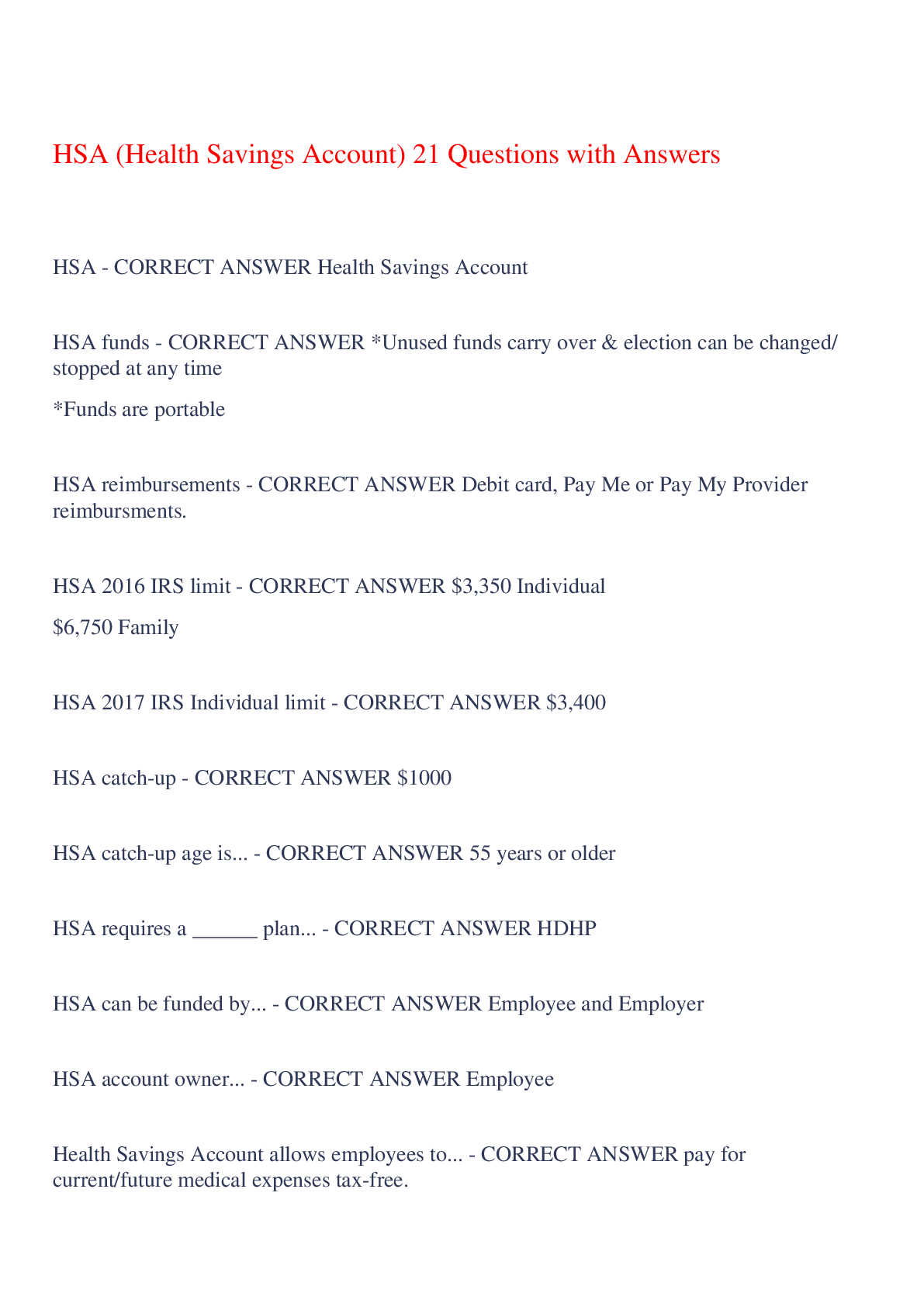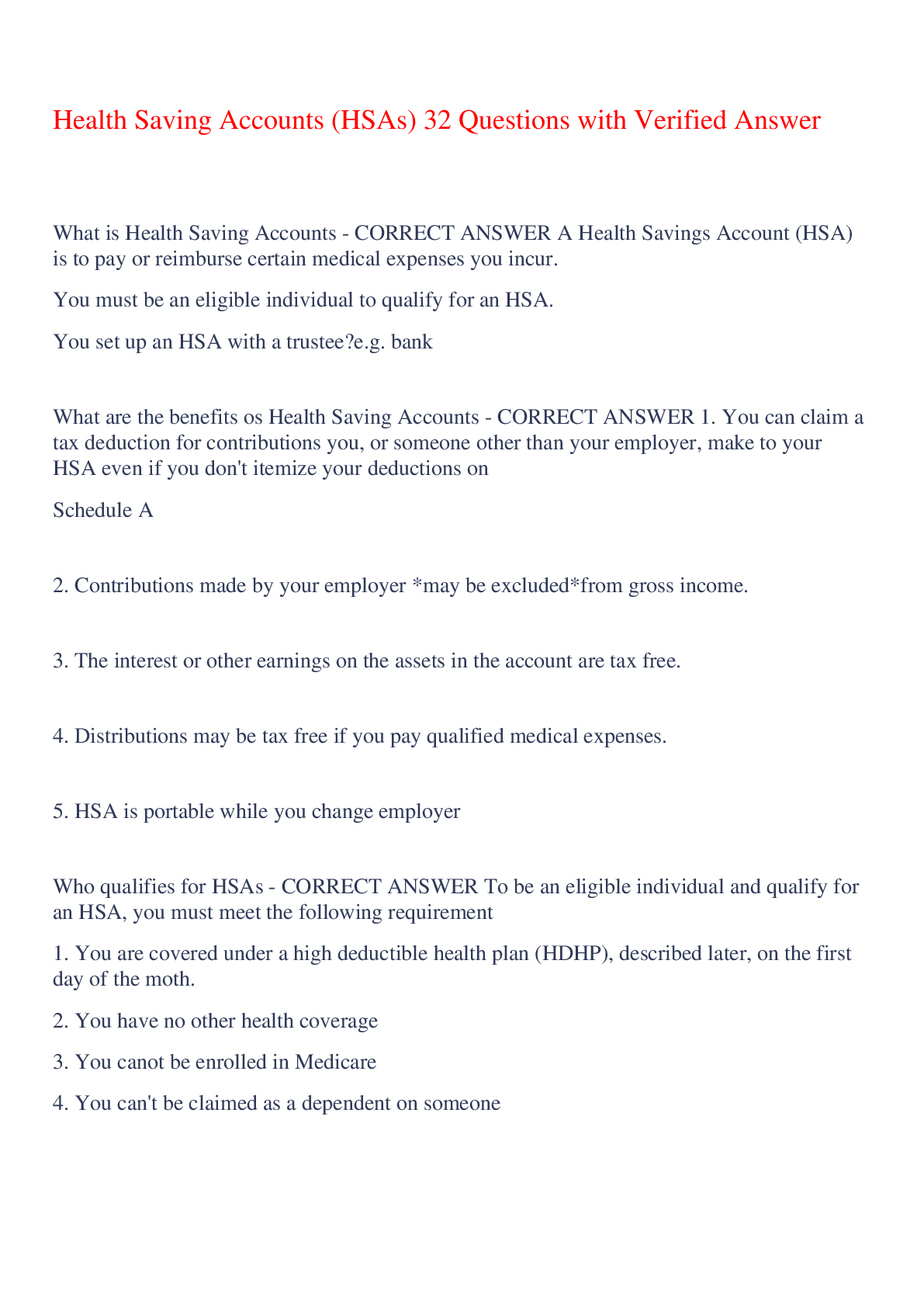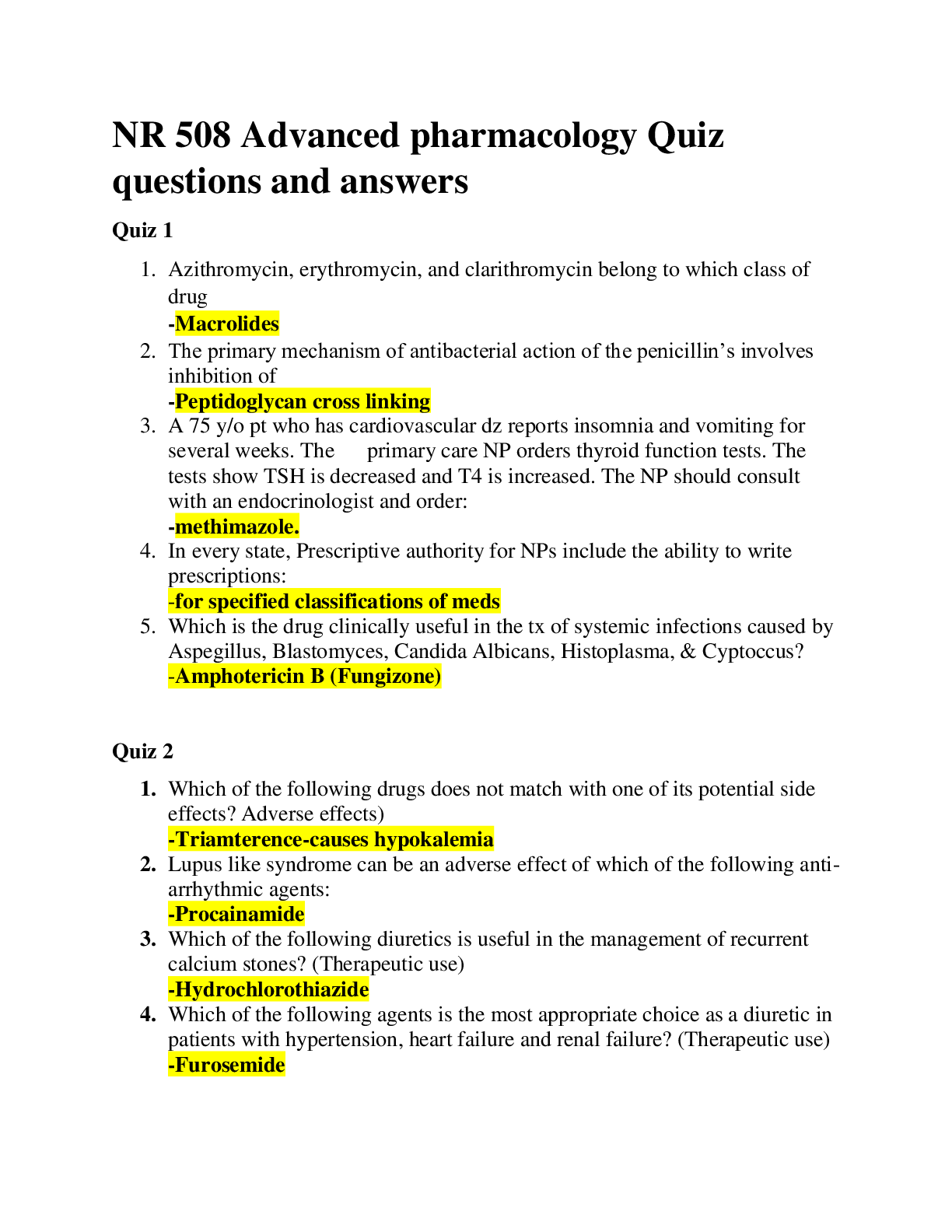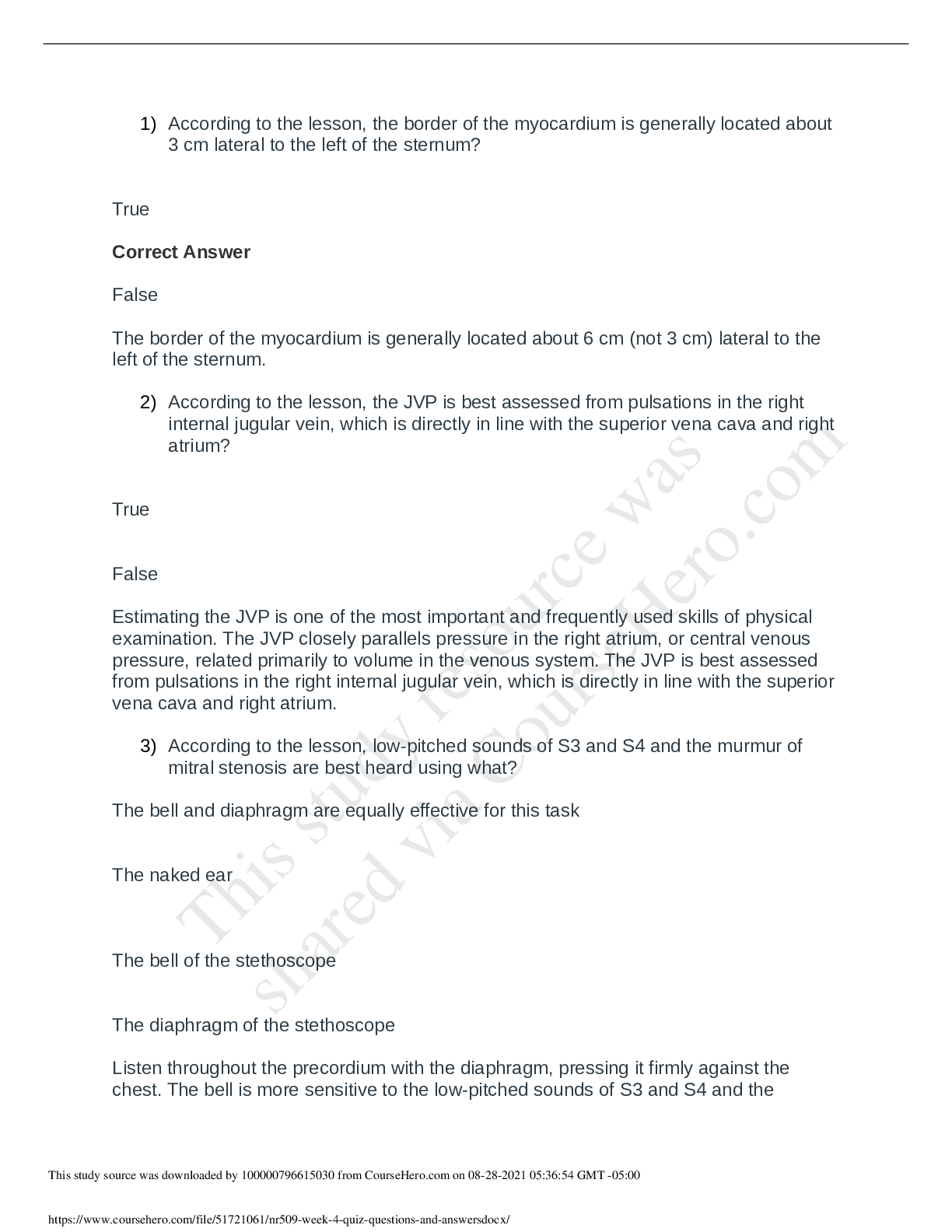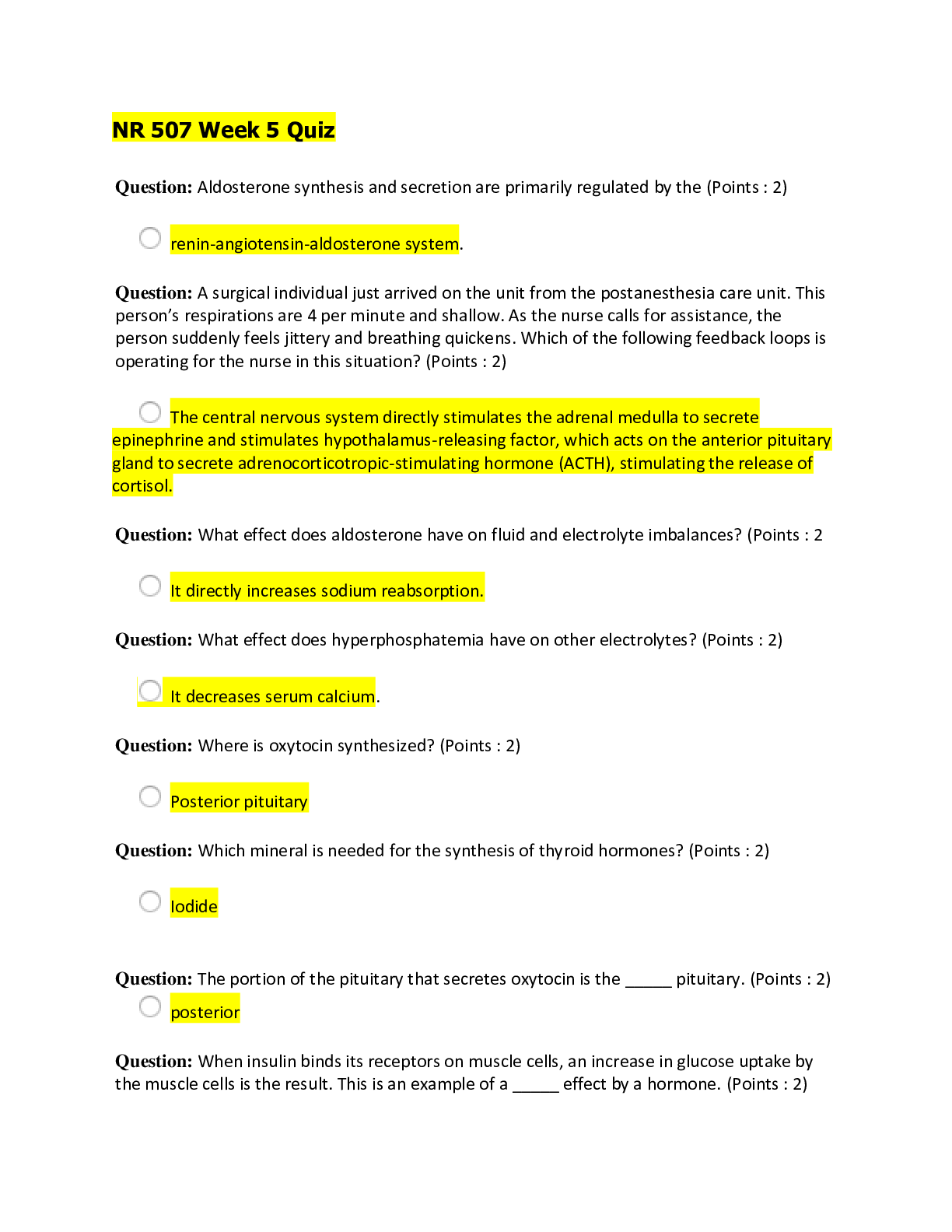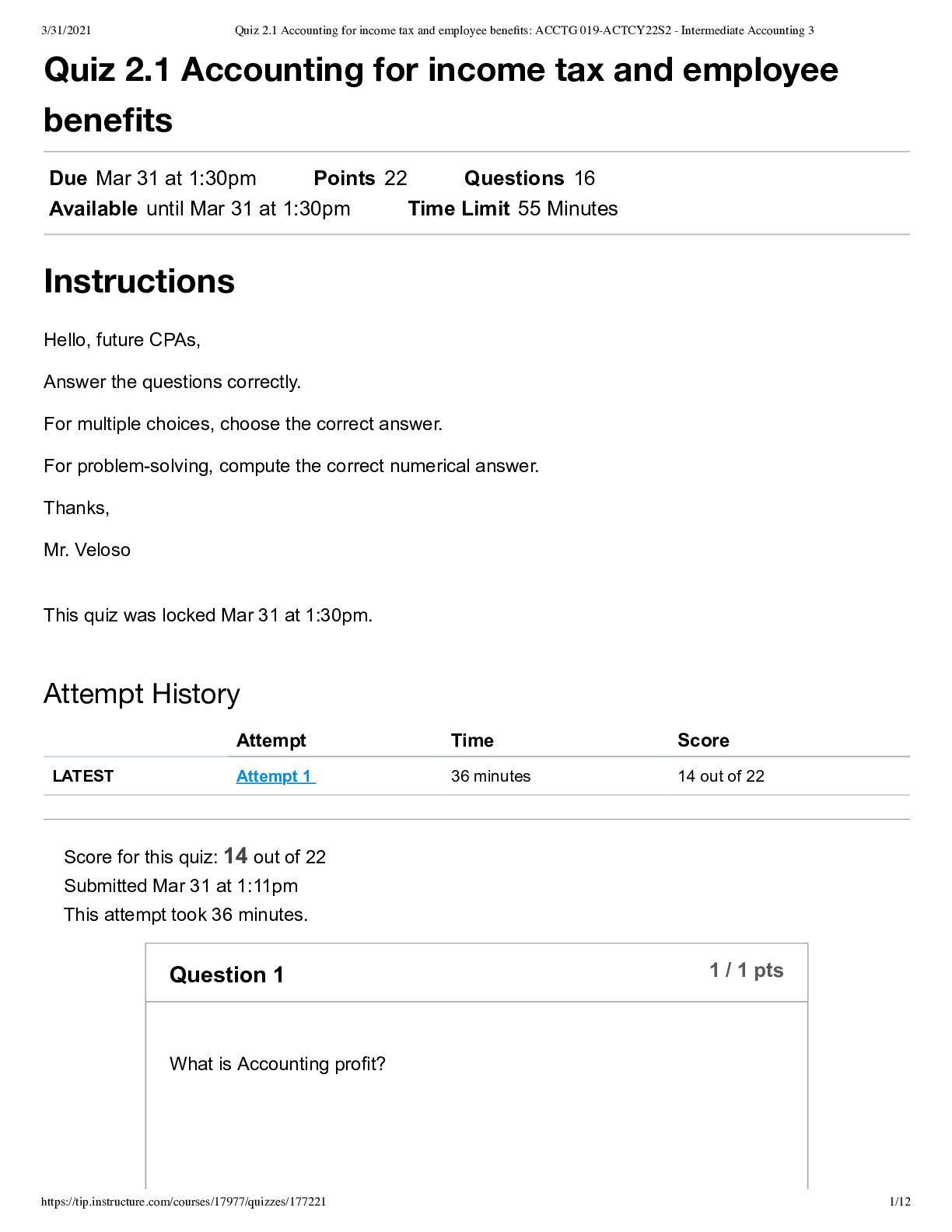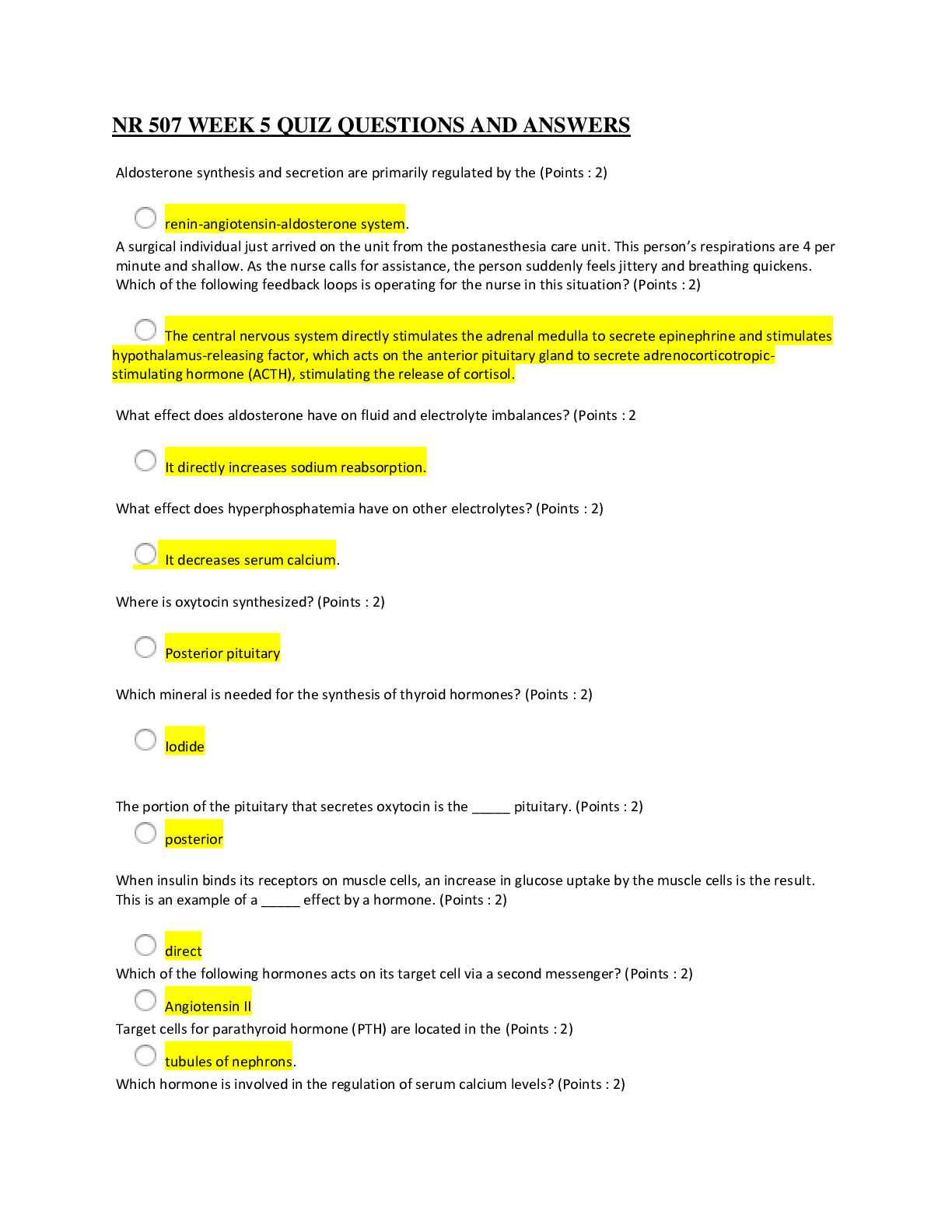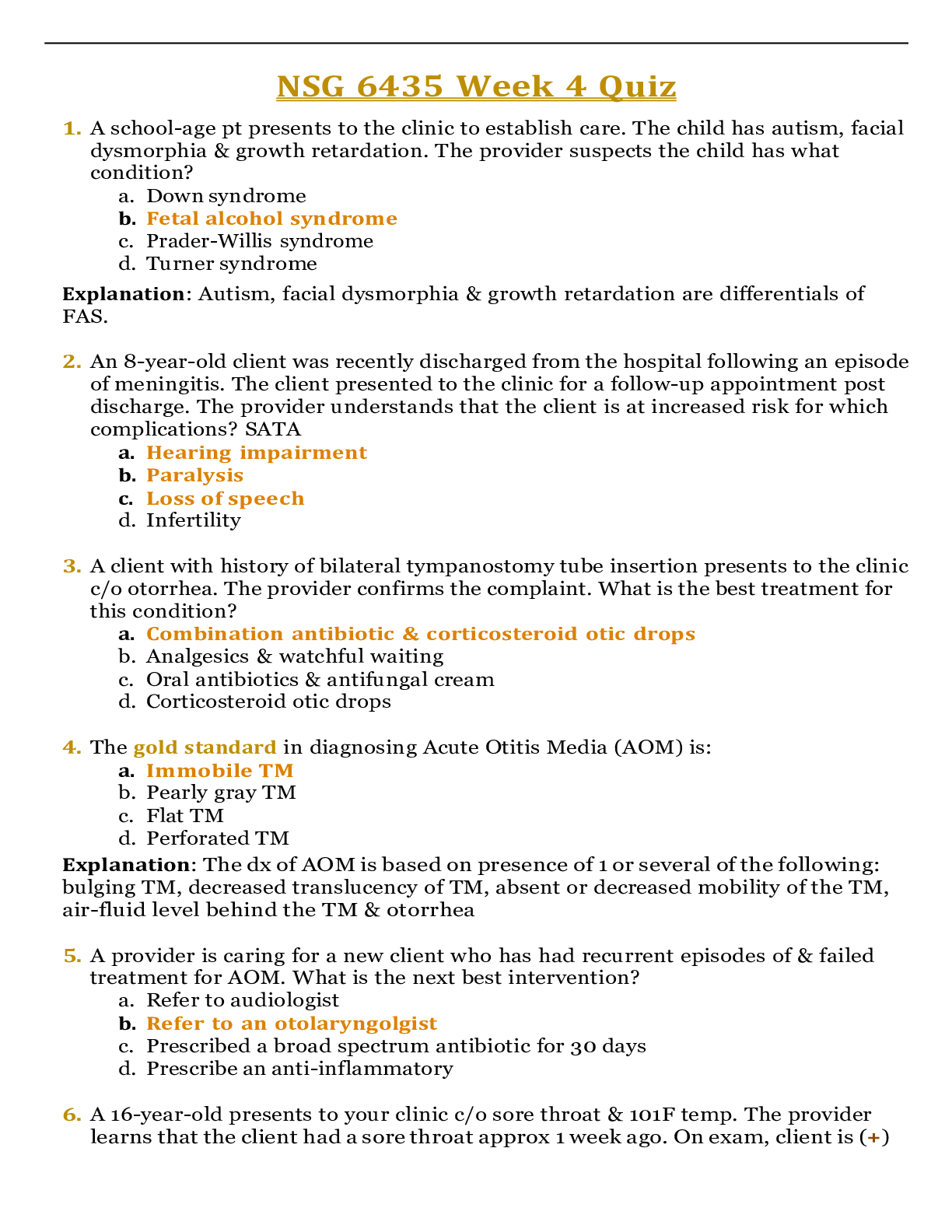English Language > EXAM > CLA grammar Quiz Questions and Answers,100% CORRECT (All)
CLA grammar Quiz Questions and Answers,100% CORRECT
Document Content and Description Below
CLA grammar Quiz Questions and Answers Affixation - Correct AnswerThe process of creating a new word through the addition of affixes and suffixes. Auxiliary verb - Correct AnswerA verb that ca... n be sued to create a tense (i.e. be, do, have) and can also convey certainty/possibility (modal auxiliary verbs, i.e. must, could, might). Bound morpheme - Correct AnswerPart of a word that cannot stand on its own (i.e. would not make sense as a word if not accompanied by the rest of the word, e.g. 'ing', 'ed'). Clause - Correct AnswerA basic unit of a sentence that usually consists of a subject and a verb. Complement - Correct AnswerUsually follows a copular verb. They have the function of adding more information about the subject of the verb. Complex sentence - Correct AnswerA multi clause sentence that contains at least one subordinate clause. Compounds sentence - Correct AnswerA multi clause sentence that is joined together by coordinating conjunctions. Bother clauses have to be equally weighted and should not be subordinate. Content words - Correct AnswerWords of which carry the semantic meaning of the clause. Coordinating conjunction - Correct AnswerA clause of which joins together two equally weighted clauses of which are not subordinate in nature. Can be remembered by this: F A N B O Y o n o u r e r d t t t Copular verb - Correct AnswerA verb that joins a subject to an adjective or noun complement, usually through use of the verb 'to be'. Derivatational morphology - Correct AnswerThe study of how affixes change the meanings of words. Grammatical words - Correct AnswerWords that 'glue' the sentence together and do not carry the semantic meaning of the clause. Holophrase - Correct AnswerOne word that carries the meaning of a whole sentence. For example, if I child where to say 'Car.', then semantically, a lot of meanings could come from a single word. Inflection - Correct AnswerA suffix that conveys tense or person or plurality/possession Inflectional morphology - Correct AnswerThe study of how affixes can show grammatical categories such as tenses or plurality. Inversion - Correct AnswerThe reversal of the normal order of words, usually associated with questions. For example, 'I can' would be reversed to 'Can I?' in order to form a question. Main clause - Correct AnswerThe clause that carries the weight and meaning in the sentence and can stand alone (make sense). MLU - Correct AnswerThe mean length of utterance. Morpheme - Correct AnswerThe smallest unit of meaning within a word. This could be a word, i.e. I, a or it or part of a word, i.e. ball, ed, ing or er. Morphology - Correct AnswerStudy of the structure of words Negation - Correct AnswerThe negative expression of a verb, i.e. not, nor, n't. Object - Correct AnswerThe 'thing' that is acted upon by the verb Plural - Correct AnswerWhen there is more than one of something. Possessive - Correct AnswerA bound morpheme that expresses possession or belonging. Prefix - Correct AnswerA morpheme that is added to the start of a word (before the root) that modifies the meaning of said word. Present progressive tense - Correct AnswerThe present tense of the auxiliary verb plus the present participle (e.g. I am running). Pronoun - Correct AnswerA word that is used in place of (replaces) a noun Proper noun - Correct AnswerA noun that used to name a person or place. Question - Correct AnswerAn interrogative used to gain information. Simple sentence - Correct AnswerContains a single main clause. Subject - Correct AnswerThe thing that is the agent of the verb. Subordinate clause - Correct AnswerA clause that cannot stand (make sense) by its self Subordinating conjunction - Correct AnswerA conjunction that introduces a subordinate clause, examples being although and because suffix - Correct AnswerA morpheme that comes after the root of a word and has the function of modifying the meaning of said word. Tag question - Correct AnswerA clause which when added to the end of a declarative sentence, forms a question. For example, 'He told you not to talk about it, didn't he?' Verb - Correct AnswerA word that describes an action or state. Virtuous errors - Correct AnswerA grammatical mistake that has underlying logic. Wug test - Correct AnswerA test derived from Jean Berko Gleason that tests the acquisition of morphemes by children. Free or unbound morpheme - Correct AnswerPart of a word that can stand alone (has a dictionary definition). [Show More]
Last updated: 1 year ago
Preview 1 out of 4 pages
Instant download

Buy this document to get the full access instantly
Instant Download Access after purchase
Add to cartInstant download
Reviews( 0 )
Document information
Connected school, study & course
About the document
Uploaded On
Feb 13, 2023
Number of pages
4
Written in
Additional information
This document has been written for:
Uploaded
Feb 13, 2023
Downloads
0
Views
25

